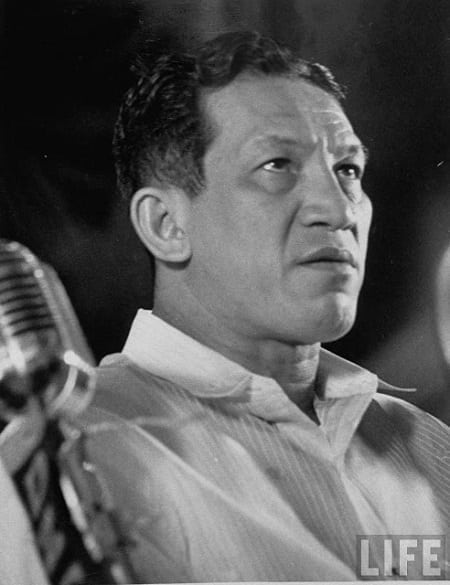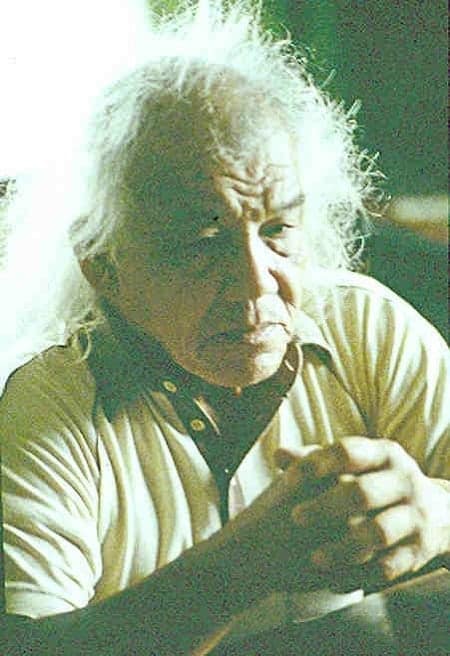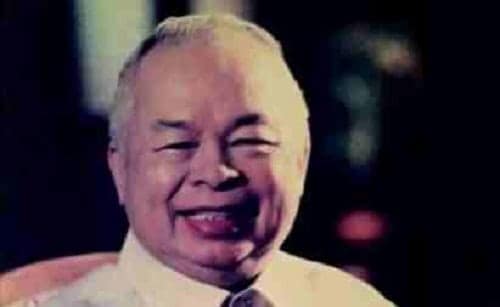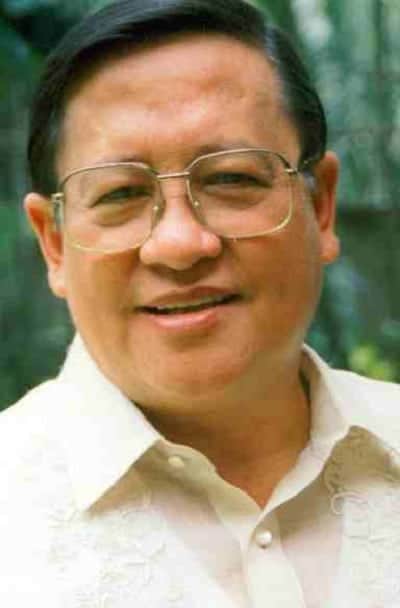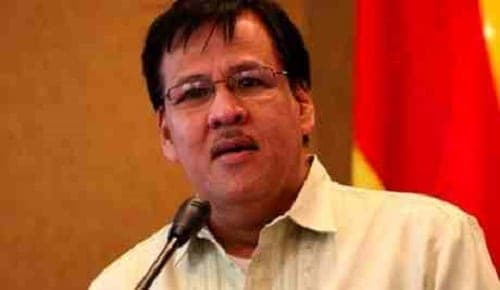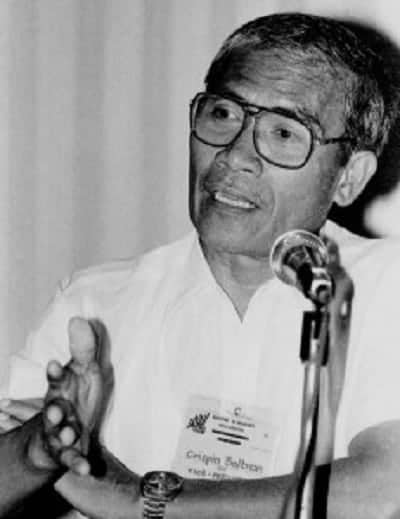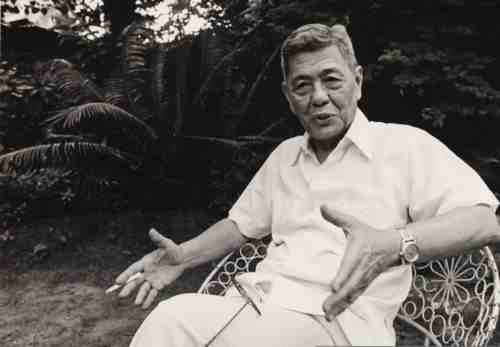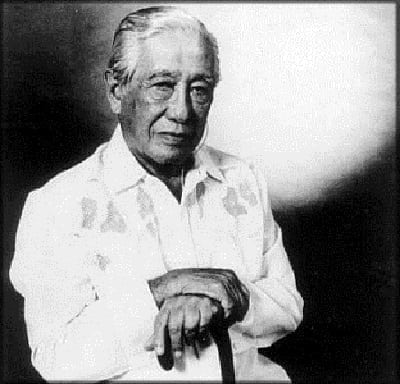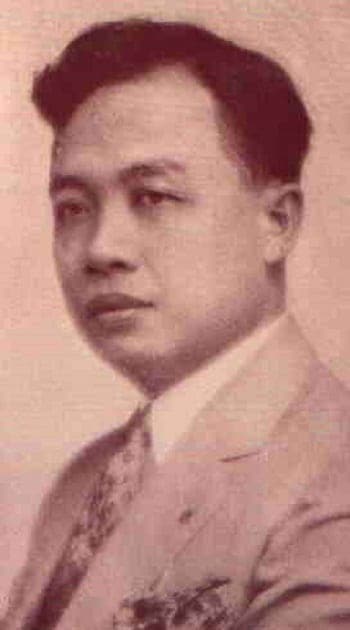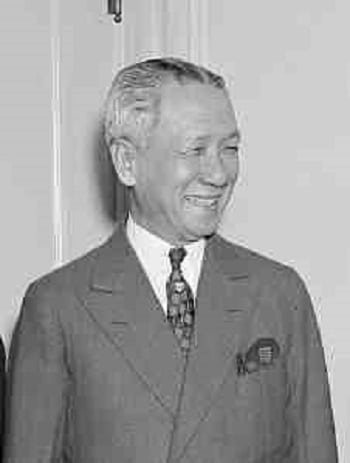10 Unforgettable Pinoy Politicians We Wish Were Still Alive

Generally, when we think of the term “Filipino politician,” what inevitably comes to our minds is “corrupt, arrogant, and incompetent.” We can’t help it though since our own politicians largely contributed to that negative public perception of themselves with all their political circuses and shenanigans.
Also Read: 0 Famous Filipinos Who Almost Became President
Although there are indeed some truly good ones in the mix, they are far and few in-between nowadays. What’s worse, their like-minded predecessors—men of integrity and honor who took public office to actually serve others—are long gone from us, in a time when we need them the most.
1. Arsenio Lacson (1912 – 1962)
In the mold of tough guy Rodrigo Duterte was Arsenio Lacson, known to his associates and enemies alike as “Arsenic” due to his fiery temper. A boxer, a journalist, and a lawyer, Lacson served as a congressman for three years but became more well-known as the mayor of Manila from 1952 to 1962.
During his time, Lacson personally led the police force in cleaning up crime across the city, sometimes even driving a patrol car at night. An excellent fiscalizer, Lacson wiped out corruption and instituted reforms in city hall during his administration.
Did you know? One of Lacson’s ancestors successfully beat the Spanish without a fight. Find out who
Due to his tough-guy stance and unflappable rhetorical skills (he once described then-Councilor and former Senator Ernesto Maceda as “so young, yet so corrupt”), Lacson was well-beloved by the public. In fact, he would have been the Nacionalista Party’s candidate for president in the 1965 elections had he not succumbed to a stroke at just 50 years old inside a hotel. His death prompted the Nacionalistas to field in then-Senator Ferdinand Marcos instead.
Incidentally, Lacson was said to have challenged Marcos to a fistfight over Imelda—an invitation which Ferdinand reportedly declined.
2. Cesar Climaco (1916 – 1984)
As a three-term mayor of Zamboanga City, Climaco would also earn the admiration of the public for his tough stance on crime and good governance.
A lawyer by profession, Climaco was known as a hands-on leader who personally confronted hoodlums on the streets, conducted surprise inspections on the police and city offices, and went to hotspots at risk to his own life. All the while, he never carried a gun nor surrounded himself with bodyguards.
An effective organizer and diplomat, he struck up friendly relations with the city’s Muslim population and strictly implemented ordinances. He also became friends with his contemporary Lacson and soon became known as the “Arsenio Lacson of the South.” In return, Lacson said he would be known as the “Climaco of the North.”
Did you know? Zamboanga City is home to a crazy conspiracy theory. Find out what
When martial law arrived, Climaco exiled himself and vowed to never cut his hair until democracy was restored. He returned to the Philippines in 1980 and became Zamboanga’s mayor for the third and last time. As mayor, he became critical of the excessive abuses of the regime’s military and police forces. He also kept a scoreboard in city hall to tally the number of unsolved crimes in the city.
The end came for Climaco in 1984 when an assassin shot him in the neck as he was inspecting a burned-down dance hall. During his funeral, an estimated 200,000 people lined up for the procession.
3. Juan Flavier (1935 – 2014)
Undoubtedly the most beloved official of all time, Juan Flavier truly exemplified the meaning of public service.
Even though he was the country’s Secretary of Health and later a Senator, Flavier always considered himself as just a “barrio doctor” in the service of the people. His contributions to the field of health are numerous; to name a few, he made health services more accessible, devised strict anti-smoking measures, and championed reproductive health (Cardinal Sin once called him an “agent of Satan” for this).
Also Read: Top 10 Pinoy Health Myths You Thought Were True
Due to his witticism and charm, Flavier became the darling of the masses yet never aspired for more power. When asked what his most cherished things in life were, he answered: “my grandchildren.” He also turned down offers of being president, saying he “did not have the fire in his belly” for such a position.
Also evident is the fact that Flavier never enriched himself in office. When he retired from public office, he went back to his house—the same one he owned since the 1960s.
4. Raul Roco (1941 – 2005)
Besides being known for his colorful Hawaiian shirts, Roco would also be remembered as an effective reformist.
A lawyer, Roco started his political career by first coming to the office of the congressman of Camarines Sur and then senator and was hailed as an outstanding public official. However, it was during his tenure as Secretary of Education when he became a well-known and respected public figure.
Also Read: 6 Reasons Why Ramon Magsaysay Was The Best President Ever
As the education head, Roco successfully implemented reforms inside the agency which was then being regarded as one of the most corrupt government departments in the country. He weeded out corrupt officials and made the purchase of textbooks open and transparent. Amazingly, the Department of Education under his guidance in just eight months became the country’s most trusted agency.
Young Filipinos especially admired Roco for his genuine attempt at good governance. It is also believed by his supporters that had his prostate cancer not recurred during the 2004 presidential elections and forced him to cancel his campaign to seek treatment in the States, Roco would have very well won the elections.
5. Jesse Robredo (1958 – 2012)
Just like his townmate Raul Roco, Jesse Robredo was also a deeply-beloved figure not only by the people of Naga but by the rest of the country as well.
As a superior public administrator, Robredo utilized his skills well when he became the mayor of Naga for almost twenty years. During his time as mayor, Robredo transformed his sleepy city into a lively economic hub of Bicol, mainly because he emphasized good governance along with the participation of both the private and public sector.
Also Read: 10 Haunting Last Pictures Taken in Philippine History
Aside from that, his humble personality—he liked to meet people on the streets and never acted like a VIP—endeared him to his constituents. Due to his talent, he was appointed Secretary of the Department of the Interior and Local Government in 2010 by President Benigno Aquino. However, the country never got to experience the full extent of his administrative wizardry due to his untimely death in 2012 after his plane crashed near Masbate.
6. Crispin Beltran (1933 – 2008)
Known as the “Grand Old Man of Philippine Labor,” Beltran’s relentless crusade for Filipino workers and peasants started in the 1950s when he was then the president of a union for taxi drivers. During the martial law years, he was at the forefront of several militant organizations and ended up as a detainee at Camp Crame from 1982 to 1984. He eventually escaped and hid in the rural areas of Central Luzon before availing of the late President Corazon Aquino’s amnesty proclamation in 1986.
He became a representative, first for Bayan Muna from 2001 to 2003, and then for AnakPawis from 2003 up to his untimely death in 2008 when he suffered severe head injuries after falling from the roof of his house. Before that, he was noted to have been an extremely punctual and hardworking congressman, garnering a near-perfect attendance record as well as 130 bills and resolutions during the 13th Congress.
However, even more amazing was his consistent reputation as the “poorest member of Congress”—a status he would take with him to his grave. At the time of his death, Beltran only had a net worth of P50,000 and counted two barong tagalog, two eyeglasses, shirts, and cabinet shelves as his assets. Yet as one of his supporters would succinctly state about Beltran’s integrity: “to die fixing one’s roof is really much more heroic than to die counting millions from corruption.”
7. Jose Diokno (1922 – 1987)
As the only one to top both the Bar and Certified Public Accountant Board Exams, Diokno is arguably one of the most brilliant minds the country has ever produced.
A staunch nationalist, human rights advocate and anti-corruption crusader, he first gained national recognition when, as the late President Diosdado Macapagal’s Secretary of Justice, he went after Harry Stonehill, an American charged with a series of crimes that included tax evasion and bribery of government officials. Unfortunately, Diokno’s dogged pursuit of the American elicited protests from those government officials under the latter’s payroll, forcing Macapagal to ask for his resignation.
Undaunted, Diokno ran for senator in 1963 and remained one up until his arrest in 1972 for alleged “subversive activities.” As a solon, he worked to secure the passage of pro-Filipino laws, including incentives for Filipino investors and businessmen and a more humane process of taxation. As a human rights advocate, Diokno formed the Free Legal Assistance Group (FLAG) which helped out victims during the martial law era while also becoming a regular attendee of street rallies.
Also Read: 10 Lesser-Known Photos from Martial Law Years That Will Blow You Away
His genuine concern for the masses also manifested itself after he resigned as head of the Presidential Committee on Human Rights in disgust over the Mendiola Massacre. According to his daughter, it was the only time his family saw him “near tears.”
Also, writer F. Sionil Jose noted that although Ninoy may have been Marcos’ most recognizable and formidable opponent, it was Diokno who embodied the genuine spirit of opposition since he did not have any hidden motives for doing so. Unlike Ninoy, he did not aspire to be president and opposed martial law because he truly believed it oppressed and abused his countrymen.
8. Lorenzo Tañada (1898 – 1992)
Dubbed as the “Grand Old Man of Philippine Politics,” Tañada’s title came from his being a senator of the country for 24 years—the longest in Philippine history. Unlike his peers of today, however, Tañada’s name is viewed with great reverence.
A nationalist and a human rights advocate just like Diokno, Tañada became the country’s Solicitor General and personally prosecuted Japanese collaborators—including Benigno Aquino Sr.—after World War II ended. Guided by the phrase “the fear of God is the start of wisdom” since his childhood, Tañada fought an uphill battle against tyranny, oppression, and imperialism.
Also Read: 11 Reasons Why Jose P. Laurel Was A Total Badass
Although he was undoubtedly a member of the intellectual elite, Tañada’s longevity enabled him to feel the country’s generational problems. In writer Randy David’s words, Tañada’s lifetime experiences transformed him from “elite politician to social activist.” Hence, it was a common thing for him to join street rallies and protests, first against martial law and then against the renewal of the lease for the US naval base in Subic Bay.
It’s no wonder just about every group from the political spectrum—including communists and military reformists/mutineers—hold Tañada in high regard.
9. Claro M. Recto (1890 – 1960)
It’s easy to see why Recto was considered as “the finest mind of his generation.” A legal and literary giant, Recto’s storied career saw him becoming a congressman, a senator, and an associate justice of the Supreme Court. In addition, he also held a number of vital government posts. He headed the assembly that drafted the 1935 Constitution and personally brought it to US President Theodore Roosevelt to sign.
An outspoken nationalist, he actively lobbied against the retention of American bases and decried what he saw as his countrymen’s colonial servility to the Americans. As the author of the Rizal Law which mandated the reading of Rizal’s works in schools, Recto criticized the Catholic Church for meddling too much in the affairs of the State.
Also Read: 25 Amazing Facts You Probably Didn’t Know About Jose Rizal
Although he was not as successful at the polls (he lost to Carlos Garcia in the 1957 presidential elections), his vaunted writing skills enabled him to greatly influence his contemporaries and successors, an ability said to be second only to Rizal’s.
Recto succumbed to a mysterious heart attack while in Rome in 1960 to fulfill a series of speaking engagements. Accordingly, it was suspected that the CIA had a hand in his death.
10. Sergio Osmeña (1878 – 1961)
As the fourth president of the Philippines, Osmeña—Cebu’s beloved “Grand Old Man”—would be remembered as the most famous and successful politician to ever come out of that province. Yet, little-known is the fact that Osmeña—undoubtedly a powerful and influential man—exhibited humility and graciousness throughout his life, a trait rare in today’s politicians.
As vice president, he frequently acceded to his boss and rival, the bombastic Manuel Quezon, going so far as to allow him to remain president during World War II in order to prevent division among their countrymen. His humility again showed itself during the 1946 presidential elections when he refused to campaign against fellow Visayan Manuel Roxas because he did not want the people of Panay and Cebu to be divided. He also believed his forty years of honest government service would speak for itself.
Did you know? Osmeña’s status as an illegitimate child did not stop him from achieving greatness. Read More
At the end of the campaign trail, he made just one short speech and lost the elections by a very slim margin. Even then, he gladly escorted and witnessed his rival’s inauguration. After that, he later retired from politics and died at the age of 81, a well-respected and beloved public statesman.
References
Avila, B. (2013). Humility: The Greatness of Don Sergio Osmeña. philSTAR.com. Retrieved 7 January 2015, from http://goo.gl/Pscf3P
Bailen, A. (1998). Super Lolo: The Odyssey of Lorenzo M. Tañada. LibraryLink. Retrieved 7 January 2015, from http://goo.gl/44o3Jy
Bantayog ng mga Bayani,. Cesar Climaco. Retrieved 7 January 2015, from http://goo.gl/jdfyCW
Dalisay, Jr., J. (2011). Jose W. Diokno: The Scholar-Warrior. Diokno.org. Retrieved 7 January 2015, from http://goo.gl/zxnFU2
David, R. (2008). Lorenzo Tañada and his times. Inquirer.net. Retrieved 7 January 2015, from http://goo.gl/uXvzvn
Doronila, A. (2003). Two eminent Filipino newsmen. Philippine Daily Inquirer, p. 10. Retrieved from http://goo.gl/JvofPE
InterAksyon.com,. (2011). TODAY IN HISTORY: 1941 – Raul Roco is born. Retrieved 7 January 2015, from http://goo.gl/W0Vuxs
InterAksyon.com,. (2014). Juan Flavier – Mr. Let’s DOH It, People’s Senator – quietly passes away. Retrieved 7 January 2015, from http://goo.gl/0no3nF
Jose, F. (2010). Defining greatness, defining Jose W. Diokno. philSTAR.com. Retrieved 7 January 2015, from http://goo.gl/q4TYII
Kwok, A., & Ager, M. (2008). ‘Grand old man of Philippine labor’ mourned. Inquirer.net. Retrieved 7 January 2015, from http://goo.gl/3H9oy4
Mateo, J. (2014). Noy, FVR visit Flavier wake. philSTAR.com. Retrieved 7 January 2015, from http://goo.gl/hwgwL5
Mendoza, G. (2012). Jesse Robredo’s journey back home. Rappler. Retrieved 7 January 2015, from http://goo.gl/e5E1hC
Senate of the Philippines,. Senators Profile – Claro M. Recto. Retrieved 7 January 2015, from http://goo.gl/yWERmH
Simbulan, R. (2000). Covert Operations and the CIA’s Hidden History in the Philippines. Lecture, University of the Philippines-Manila, Rizal Hall, Padre Faura.
FilipiKnow
FilipiKnow strives to ensure each article published on this website is as accurate and reliable as possible. We invite you, our reader, to take part in our mission to provide free, high-quality information for every Juan. If you think this article needs improvement, or if you have suggestions on how we can better achieve our goals, let us know by sending a message to admin at filipiknow dot net
Copyright Notice
All materials contained on this site are protected by the Republic of the Philippines copyright law and may not be reproduced, distributed, transmitted, displayed, published, or broadcast without the prior written permission of filipiknow.net or in the case of third party materials, the owner of that content. You may not alter or remove any trademark, copyright, or other notice from copies of the content. Be warned that we have already reported and helped terminate several websites and YouTube channels for blatantly stealing our content. If you wish to use filipiknow.net content for commercial purposes, such as for content syndication, etc., please contact us at legal(at)filipiknow(dot)net
